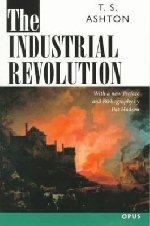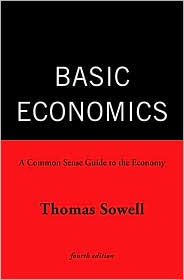 What should I read to understand this? In my last posting I suggested that I think that social and economic conditions need not be such an influential factor on the culture as some suggest. My sense is that the form of the liturgy and the liturgical forms being produced now that are the driving force for a wider culture of beauty...or of ugliness.
I am not a trained economist and so have tried to do some reading recently to try to understand more how this might work. It is important to try to understand this. If we want to create a culture of beauty for the New Evangelisation then we need to understand what influences culture and how in order to try to redress the balance today. furthermore, anyone who wishes the production of beautiful art to be a vibrant force in the modern world must, I suggest, try to understand how this can be funded. Should it be left to free market forces? Or should we seek to subsidize favoured artists for the good of society? I thought I would pass on where my reading has taken me.
What should I read to understand this? In my last posting I suggested that I think that social and economic conditions need not be such an influential factor on the culture as some suggest. My sense is that the form of the liturgy and the liturgical forms being produced now that are the driving force for a wider culture of beauty...or of ugliness.
I am not a trained economist and so have tried to do some reading recently to try to understand more how this might work. It is important to try to understand this. If we want to create a culture of beauty for the New Evangelisation then we need to understand what influences culture and how in order to try to redress the balance today. furthermore, anyone who wishes the production of beautiful art to be a vibrant force in the modern world must, I suggest, try to understand how this can be funded. Should it be left to free market forces? Or should we seek to subsidize favoured artists for the good of society? I thought I would pass on where my reading has taken me.
It seemed to me that there are two things that I need to have clear in my mind in trying to understand this field. The first is what is the just society that we are seeking to move towards. There are many aspects of what this might be, but in terms of social conditions the encyclicals of the Church of the last 120 years seem most applicable. Rerum Novarum was my starting point. This was written in 1891 by Pope Leo XIII. Then I focussed on the following: Quadragesimo Ano written by Pope Pius XI to mark the fortieth anniversary of the first. Then I skipped forward to the encyclicals of John Paul II: Laborem Exigens, Solicitudino Rei Socialis and Centesimus Annus. After that the recent encyclical by Pope Benedict XVI seemed to have much to say that was relevant.
 Another aspect in trying to understand this, is to try to see historically what the social conditions were like that the Popes were commenting on. I am just starting here, but I have recently read T S Ashton's The Industrial Revolution, 1760-1830.
Another aspect in trying to understand this, is to try to see historically what the social conditions were like that the Popes were commenting on. I am just starting here, but I have recently read T S Ashton's The Industrial Revolution, 1760-1830.
The second thing is to try to understand how to get there. In order to do that I must, it seems to me, try to understand something about economics. My starting point is a book by the economist Thomas Sowell called Basic Economics. I have just finished reading this. First thing to say is that I don't know how he does it, but this is an economics textbook, intended for use by university students as an introduction, but it is entertaining and throughout. Thomas Sowell explains clearly and easily what controls the generation of wealth and its distribution, whether it is in a market economy or a government controlled economy, the same principles apply (although obviously their application is very different in each case). He points out where moral decisions are to be made, but does not attempt to answer those questions for you, his goal is to show you how the economic choices made are likely to achieve the end desired. So Catholics would want to read Catholic social teaching as well so as to direct our picture of a just society. Sowell tests hypotheses with statistical data, so answering questions such as: does a lowering taxes in increase tax revenue or reduce it? He points out common errors used in economic argument such as equating the justice of a policy with its intended effect rather than what it actually causes (rent control policies and the detrimental effects that they have on the availability of housing for the poor  being one example he discusses; he talks of the error of looking at the economy as a zero-sum game in which economic policies seek to redistribute a finite pot of money, rather than being aware also that policies can affect the creation of wealth for all and increase the size of the pot for all involved, both rich and poor. He discusses the true causes of the 1930s depression and the current financial crisis and in the case of the Great Depression, the reasons that it ended (very surprising and exactly the opposite of what I thought in every aspect). He discusses error of assuming that all the economy behaves as one small part - this leads to policies that protect certain groups of workers or employers, but neglect the effect - usually much more detrimental overall - on others with the community as a whole. he calls this the 'fallacy of composition'. On each occasion he details the intentions of any stated policy, the actual effect with reference to statistical data. I found a real eye-opener and much of what he says overturns many of the assumptions I have made about how economics works for most of my adult life. I wholeheartedly recommended it.
being one example he discusses; he talks of the error of looking at the economy as a zero-sum game in which economic policies seek to redistribute a finite pot of money, rather than being aware also that policies can affect the creation of wealth for all and increase the size of the pot for all involved, both rich and poor. He discusses the true causes of the 1930s depression and the current financial crisis and in the case of the Great Depression, the reasons that it ended (very surprising and exactly the opposite of what I thought in every aspect). He discusses error of assuming that all the economy behaves as one small part - this leads to policies that protect certain groups of workers or employers, but neglect the effect - usually much more detrimental overall - on others with the community as a whole. he calls this the 'fallacy of composition'. On each occasion he details the intentions of any stated policy, the actual effect with reference to statistical data. I found a real eye-opener and much of what he says overturns many of the assumptions I have made about how economics works for most of my adult life. I wholeheartedly recommended it.
I have put an interview with Mr Sowell in which he discusses this book, which is YouTube below. He is as entertaining in interview as his writing.
And finally, here is a book I haven't read yet, although I am about to start. It is It Didn't Have to Be This Way: Why Boom and Bust is Unnecessary - and How the Austrian School of Economics Breaks the Cycle (Culture of Enterprise). This is written by Harry Veryser who has taught economics at Thomas More College. He is currently runs the Master program in Economics at the University of Detroit. I am interested in this book particularly because here we have an economist who understands economics deeply, and who is a devout Catholic interested in a just society. I will keep you posted!
C. http://www.youtube.com/watch?v=bOMksnSaAJ4

